First of all, it is important to know that there is a distinction between spraying and peeing next to the garbage can. If your cat pees next to the crate or in unfamiliar places in the house, there is often a bladder problem. It is advisable to contact your veterinarian. Spraying is often performed by males, but sometimes by females. Cats will spray small amounts of urine in certain areas, particularly vertical areas. For example against a couch or on the wall. This territorial behavior often arises as a result of stress your cat is subjected to. Often there is something in the environment that is causing your cat stress.
What are the possible causes of cat spray?
The causes can be very diverse and sometimes it is really good to look for the cause. Spraying is often associated with stress. Stress for your cat can have many causes that you are not always aware of. For example too many cats in the house, strange cats in the house or in the garden, cats in the house who are not companions, renovation/moving, vacations, change of daily routine (e.g. due to changed work schedules of the owner), new partner, birth of a baby and penalties. Frustration can also play a role (e.g. if your cat wants to go outside but cannot/may not). Spraying can also have an underlying cause, such as a bladder infection. Visiting the vet to rule out a bladder problem can also be very helpful for cats who spray.
What can I do myself against squirting cats?
There are several things that can help if your cat is spraying. First, you can take a critical look at your litter box(s). Some cats start spraying because they don't like the litter box anymore. A simple change of container or grain can be sufficient, but more frequent cleaning can also be a solution. Is the litter box in a quiet place? Do not place food and water bowls near the litter box. Putting up a second (or third) container can sometimes make a big difference.
Second, spaying or neutering your cat can lead to a drop in hormones (which stimulate territorial behavior). So it could be a method to reduce the spray behavior. However, if you want to solve the problem properly, you have to actually find the cause of the stress and eliminate it. Only then do other methods make sense.
Punishing a cat is not a solution to spraying. On the one hand, because punishment is often wrong. Secondly, because punishments do not eliminate the cause of the problem, they only make it worse in the case of stress.
Placing food and water bowls in spraying areas is often a very good way to prevent spraying in that area. However, the big disadvantage of this is that the spray spot moves.
Clean cat splash stains
You can clean the spray points with Biotex and alcohol. Just cleaning with an all-purpose cleaner is not enough, the smell of urine remains. Also, you should never clean with vinegar, chlorine, or bleach.
After cleaning, you can treat the areas with Feliway. This is a substance that contains pheromones. Pheromones are natural substances secreted by cats. The use of pheromones has a calming effect on your cat and reduces stress. These remedies are also available in a vaporizer, which can be very beneficial for cats who spray. You should use the diffuser in any room where your cat hangs out or where your cat sprays frequently, and especially in the room where your cat hangs out most often.
Finally, there are special cat flaps on the chip so only your cat can get in and not all other cats in the area. You can also try letting your cat indoors for a while, maybe stress from a neighborhood cat is the problem.
Do I need help spraying my cat?
Of course, it is not always necessary to seek help. However, it may be worth discussing the situation with your veterinarian. He/she may have tips, can think about possible causes with you and, if necessary, refer you to a behavioral expert. Your vet might also be able to help you with additional medication (mild sedatives). With the above advice, you can try to limit spraying. If this doesn't work, it is always advisable to seek professional help.
This text was translated by a translation machine
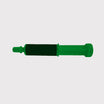 Horse Pharmacy
Horse Pharmacy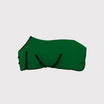 Rugs
Rugs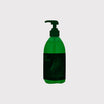 Care
Care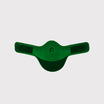 Saddle and Attachments
Saddle and Attachments Leg Protection
Leg Protection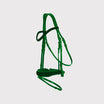 Bridles
Bridles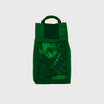 Feed
Feed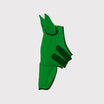 Fly Masks
Fly Masks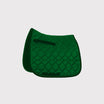 Saddle Pads
Saddle Pads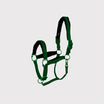 Headcollars and Ropes
Headcollars and Ropes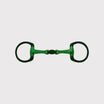 Bits
Bits Other Disciplines
Other Disciplines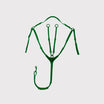 Reins and Auxiliary Reins
Reins and Auxiliary Reins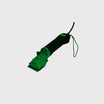 Clipping
Clipping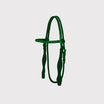 Western
Western Eventing
Eventing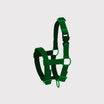 Foals
Foals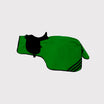 Reflection
Reflection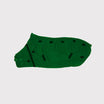 Therapy Products
Therapy Products Boots and Shoes
Boots and Shoes Breeches and Belts
Breeches and Belts Tops
Tops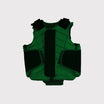 Safety
Safety Competition
Competition Heated Clothing
Heated Clothing Gloves
Gloves Socks
Socks Spurs and Attachments
Spurs and Attachments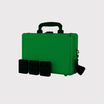 Technology
Technology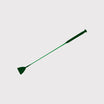 Whips
Whips Gifts
Gifts Casual Wear
Casual Wear Underwear
Underwear Rider Pharmacy
Rider Pharmacy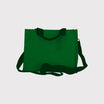 Bags
Bags Books
Books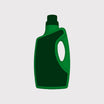 Laundry supplies
Laundry supplies Jewelry
Jewelry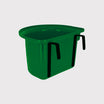 Feed and Waterbowls
Feed and Waterbowls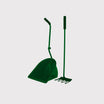 Equipment
Equipment Tack Room
Tack Room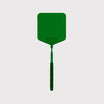 Pest Control
Pest Control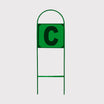 Arena
Arena Horse Toys
Horse Toys Wheelbarrows
Wheelbarrows Yard
Yard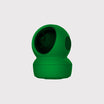 Surveillance
Surveillance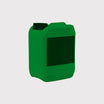 Disinfect
Disinfect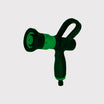 Washing Area
Washing Area Lighting
Lighting Horse Pasture
Horse Pasture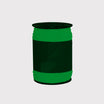 Current Conductors
Current Conductors Pole
Pole Insulators
Insulators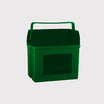 Energisers
Energisers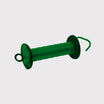 Gate Handles
Gate Handles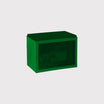 Batteries and Accumulator
Batteries and Accumulator Nets
Nets Grounding
Grounding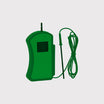 Tools
Tools Fencing Security
Fencing Security Wolf Defense
Wolf Defense Fencing Sets
Fencing Sets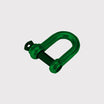 Fence locks
Fence locks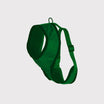 Dogs
Dogs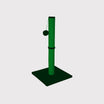 Cats
Cats Rodents
Rodents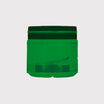 Dogs Pharmacy
Dogs Pharmacy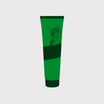 Cats Pharmacy
Cats Pharmacy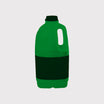 Rodents Pharmacy
Rodents Pharmacy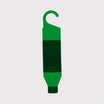 Cattle Pharmacy
Cattle Pharmacy Poultry Pharmacy
Poultry Pharmacy Veterinary Supplies
Veterinary Supplies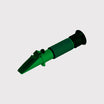 Cattle
Cattle Sheep and Goats
Sheep and Goats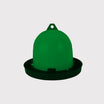 Poultry
Poultry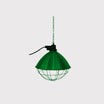 Heat Lamps
Heat Lamps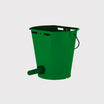 Calves
Calves Marking
Marking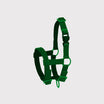 Halters
Halters